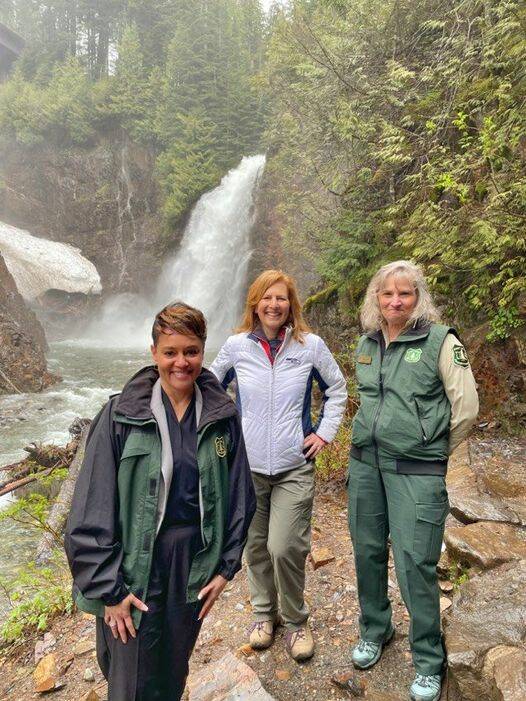Members of The U.S. The Department of Agriculture were joined by the U.S. Rep. Kim Schrier on June 6 in the Mt-Baker-Snoqualmie National Forest, to announce $503 million in federal funding that benefits outdoor recreation and conservation.
The announcement was made near the Denny Creek and Franklin Falls trailheads about 30 minutes outside of downtown North Bend.
The funding is part of the bipartisan Great American Outdoors Act, which was passed in 2020, and permanently funded the Land and Water Conservation Fund and established the National Parks and Public Land Legacy Restoration Fund for a five year span, to support maintenance and repairs in national parks, national forests and other federal lands.
According to the USDA, the Legacy Restoration Fund focuses on addressing the backlog of deferred maintenance on federal managed lands supplying $285 million for 450 projects in 38 states. The Land and Water Conservation fund expands conservation efforts across both federal and state lands. The bill is also intended to support rural economies, improve access to and volume of outdoor recreation.
“The Great American Outdoors Act and President Biden’s Bipartisan Infrastructure Law are betting on America — our special places, our communities and our people,” USDA Deputy Secretary Jewel Bronaugh said in a press release. “Even beyond improved access, facilities and infrastructure, these investments create economic opportunity and good jobs where projects like this have the most impact.”
In 2021, the bill earmarked $14 million in funding to the Mountains to Sound Greenway Project, a corridor of 1.5 million acres of land from Seattle to Ellensburg along I-90 that includes the Mt. Baker-Snoqualmie National Forest. The area receives more than 1.5 million visitors each year.
Those funds went towards improvements at several destinations including, Denny Creek, Franklin Falls, Annette Lake, Snow Lake, the Pratt Bar trail in the Middle Fork Snoqualmie River Valley and the Asahel Curtis Nature Trail.
The Greenway is expected to receive $7.1 million in 2022, which will be used for upgrades to failing infrastructure and improving recreators’ experiences.


